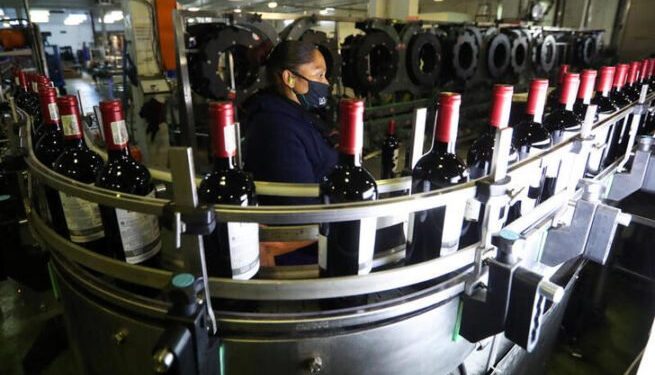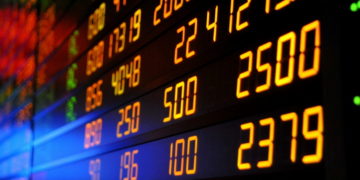Standard Bank is pushing Alibaba to make South African red wines available on its platform at scale in a bid to match unsold South African production with Chinese demand.
The bank is “working hard to get it in place early this year,” Leon Barnard, chief executive of Standard Bank personal and business banking for Africa regions, tells The Africa Report.
Standard Bank has positioned itself as a provider of trade solutions between Africa and China through its partnership with the Industrial and Commercial Bank of China (ICBC). The banks have a joint venture, ICBC Standard Bank, which is 60% owned by ICBC and 40% by Standard Bank.
South African wines are now in the early stage of being promoted on a virtual ICBC store after a development period and this will be ramped up in 2021, Barnard says.
COVID-19 has left a stockpile of unsold South African wine. Barnard estimates that 300m litres of wine has not been absorbed locally due to the pandemic. He sees an opening for South Africa in the trade war that has broken out between China and Australia.
- Beijing has imposed tariffs of up to 212% on Australian wine, and an Australian industry body estimates that wine exports to China have dropped by 95%.
The only snag, Barnard says, is that Chinese demand is largely confined to red wine, as red is a lucky colour in China. There’s little interest in white wines, which make up about 55% of South African production.

Barnard aims to use such initiatives to establish the bank as a solutions provider for African agricultural businesses. With agriculture still accounting for 25% or more of GDP in many African countries, even marginal improvements in efficiency and distribution can spur economic growth. Agriculture, he says, is “a key strategic growth area for the bank.”
Free trade and logistics
Such initiatives bring no immediate bottom-line benefit to Standard Bank. The strategy, Barnard says, is to get closer to the transactional chains between businesses and build long-term relationships with them.
The approach goes beyond that of a loss-leading product offer and aims to create value in African ecosystems.
- The bank uses a similar strategy with coffee producers in Nigeria and Ghana, and maize growers in Uganda.
- The bank supplies verification processes to detect fake seeds and fertilisers, and also helps agricultural producers by financing silage facilities and helping to create offtake agreements.
- “We don’t want to use a standard banking model,” Barnard says. “You have to be a player in all your ecosystems.”
Logistics and infrastructure are key ecosystem challenges. Barnard has witnessed truck queues at the border between Mozambique and Malawi stretching back seven or eight kilometres. He hopes that the African Continental Free Trade Area (AfCFTA) which came into effect in January 1 will make such scenes a thing of the past.
- Africa’s “grey trade flows” need to be brought into the open, Barnard says.
- More transparency is needed to reduce corruption and under-declaration of cross-border trade. Road infrastructure will be a huge obstacle, as will better truck maintenance and spare parts availability, he says.
- Reduced freight volumes due to COVID-19 will make it hard to form an early judgement on the effectiveness of the free trade deal, he says.
The offtake agreement for South African wine cannot come soon enough: some R1.5bn worth of wine is at risk as storage capacity is strained.
It would not be the first bargain that Alibaba has sniffed out on the continent. Jack Ma’s e-commerce platform started exporting Rwandan coffee in 2018, for example.
The Bottom Line
Australia’s trade war with China offers a sliver of hope for South Africa’s wine exporters.








